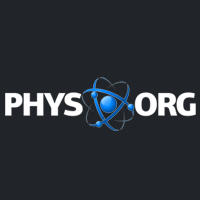Media Watch
Here are the colleges that will compete to make OC ‘world’s sustainability capital’
The Orange County Register -
“Over the next year-and-a-half we will be designing, building, and testing a 1,200-square foot Accessory Dwelling Unit (ADU) that is carbon-neutral, resilient, affordable, water- and energy-efficient, and of course attractive and comfortable,” says the website for Team M.A.D.E.-OC — “Modular Affordable Dwellings for the Environment” — which pairs up Orange Coast College and UCI’s School of Engineering. … UCI/OCC project lead [and UCI director of special projects] Jennifer Wilkens said Team M.A.D.E.-OC is in the early stages of recruiting students and faculty mentors, and beginning schematic design. [Subscription required, campus-wide access provided by UCI Libraries. Sign-up here: https://guides.lib.uci.edu/news/ocregister] Read More
New assessment tool shows Bay Area counties with highest wildfire risk
KABC San Francisco -
While doing things to protect your home will help, the study concluded that a community-wide effort is needed to create a real firewall. One option is to greatly increase the number of controlled burns, according to a study released out of UC Irvine. "Our study shows that winter and spring are feasible times of the year that more prescribed burns should be done to help mitigate these extreme wildfires that we could see in the future," said Janine Ann Baijnath-Rodino [postdoctoral scholar] with UC Irvine's Environmental Engineering Department. Read More
Research recommends extending California's prescribed burning season
Phys.org -
"California's wildfires have been getting worse every year in recent decades, owing to factors such as climate change and a century-long fire deficit coupled with a buildup of vegetation and fuels," said study leader Tirtha Banerjee, UCI assistant professor of civil and environmental engineering. "Prescribed burns can help alleviate this problem, but only if they're done with adequate frequency and over a large enough territory in the places where they are needed." Read More
Shrinking toys inspire diagnostics and wearable sensors of the future
Drug Discovery News -
At the height of their popularity in the 1980s, no one could have guessed that Shrinky Dinks would inspire tiny diagnostic tests or sensors to detect changes in a person’s health. While these inexpensive and easy-to-access toys may have started as a childhood pastime for Michelle Khine, a bioengineer at the University of California (UC), Irvine, they became her inspiration for a new way to diagnose and monitor disease. Read More
Coastal fire a harsh reminder that fire season is longer, more intense
The Orange County Register -
A year ago, researchers at UC Irvine issued a report on Southern California wildfire trends that concluded what any non-scientist, long-time resident already knew – there have been a lot more wildfires in the region during this century. … “Each new year of the 21st century has been a record-breaker in terms of wildfire damage in California,” said report co-author Tirtha Banerjee, an [assistant] professor of civil & environmental engineering at UCI. [Subscription required, campus-wide access provided by UCI Libraries. Sign-up here: https://guides.lib.uci.edu/news/ocregister] Read More
Lake Powell’s drought is part of a growing threat to hydropower everywhere
Popular Science -
When hydroelectric power isn’t reliable, people typically turn to fossil fuels, says Brian Tarroja, an energy researcher at the University of California, Irvine. “You do want to build new assets, more renewable energy, more storage, more flexibility and all that stuff,” he says. … That could mean plants that work with lower amounts of water. Even more crucial, he says, is making sure that other renewable energy sources are built up as well. Otherwise, shortcomings in hydropower will continue to mean sliding back into fossil fuel use. Read More
Foothill wins Vital Link electric race car competition at UC Irvine
Daily Pilot -
High school students saw their ideas hit the pavement Saturday morning at UC Irvine. The annual Vital Link Energy Invitational took place at a parking lot on campus, with 11 high school teams racing their self-built electric cars in four heats. Two different teams from Foothill High placed first and third in the contest, which judged cars based on their efficiency using the following formula: 10 million, divided by (watt hours times total seconds). [Subscription required, you can request an electronic copy of the article by sending an email to communications@uci.edu.] Read More
Should utilities rethink the power transmission model?
Marketplace -
Brian Tarroja, [senior scientist], a researcher at the University of California, Irvine, said …. “What we should talk about is not so much the question of whether the grid is ‘ready for it,’ but what are the steps that need to be taken to accommodate these new resources?” he said. According to Tarroja, building the solar plants, wind farms and battery storage is the first part of the equation. Then states have to build the infrastructure to get that electricity from the power plants into people’s homes and businesses. Read More
High school students go green for Energy Invitational race car competition
Daily Pilot -
Twenty-six high school teams from Orange County and Long Beach have been tasked with building the most efficient electric car they can. Their cars were inspected last weekend, and it’s all been leading up to race day Saturday morning at Parking Lot 70 at UC Irvine. … The teams will be back on track racing this year for the competition, originally created by UC Irvine engineering [Distinguished] Professor Michael McCarthy. [Subscription required, you can request an electronic copy of the article by sending an email to communications@uci.edu.] Read More
Southeast Asia’s months-long heat wave is untenable for human health
Popular Science -
This extreme weather is “part of a broader climate-change signal,” Amir AghaKouchak, [professor of civil and environmental engineering and Earth system science], a climate researcher at the University of California, Irvine, told Tech Review. Even incremental increases in global temperature will cause extreme heat events like this to become more and more frequent. Read More







